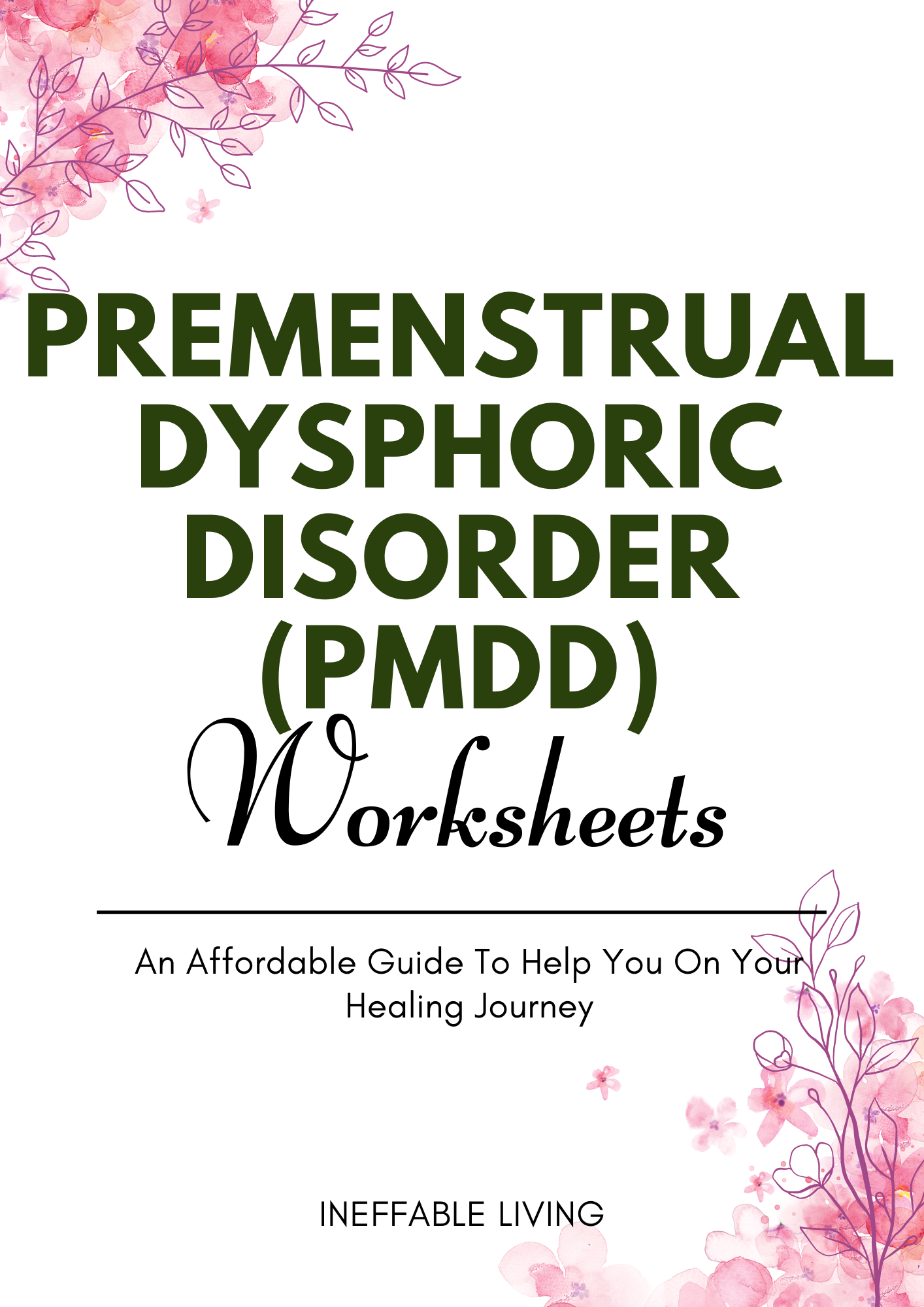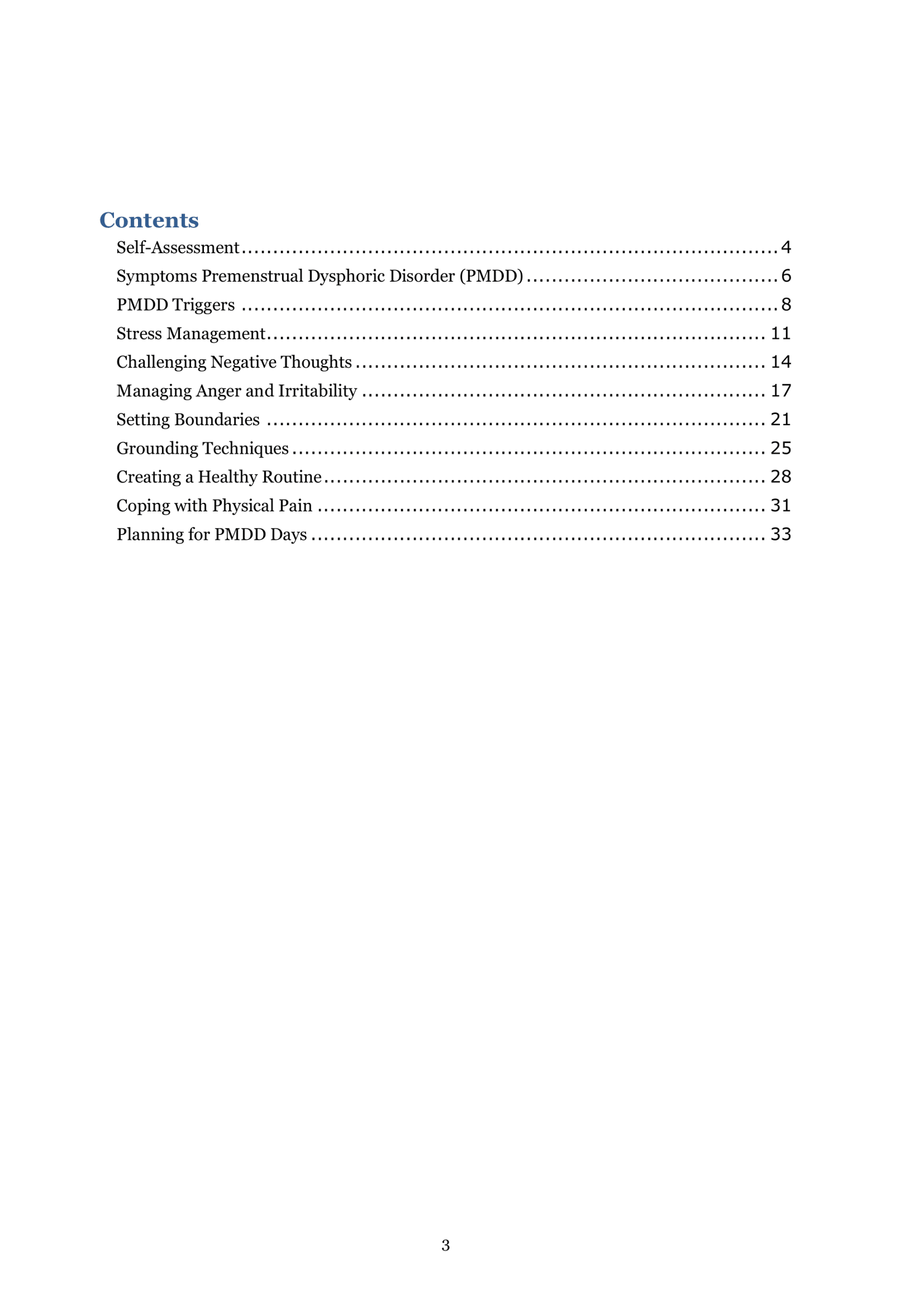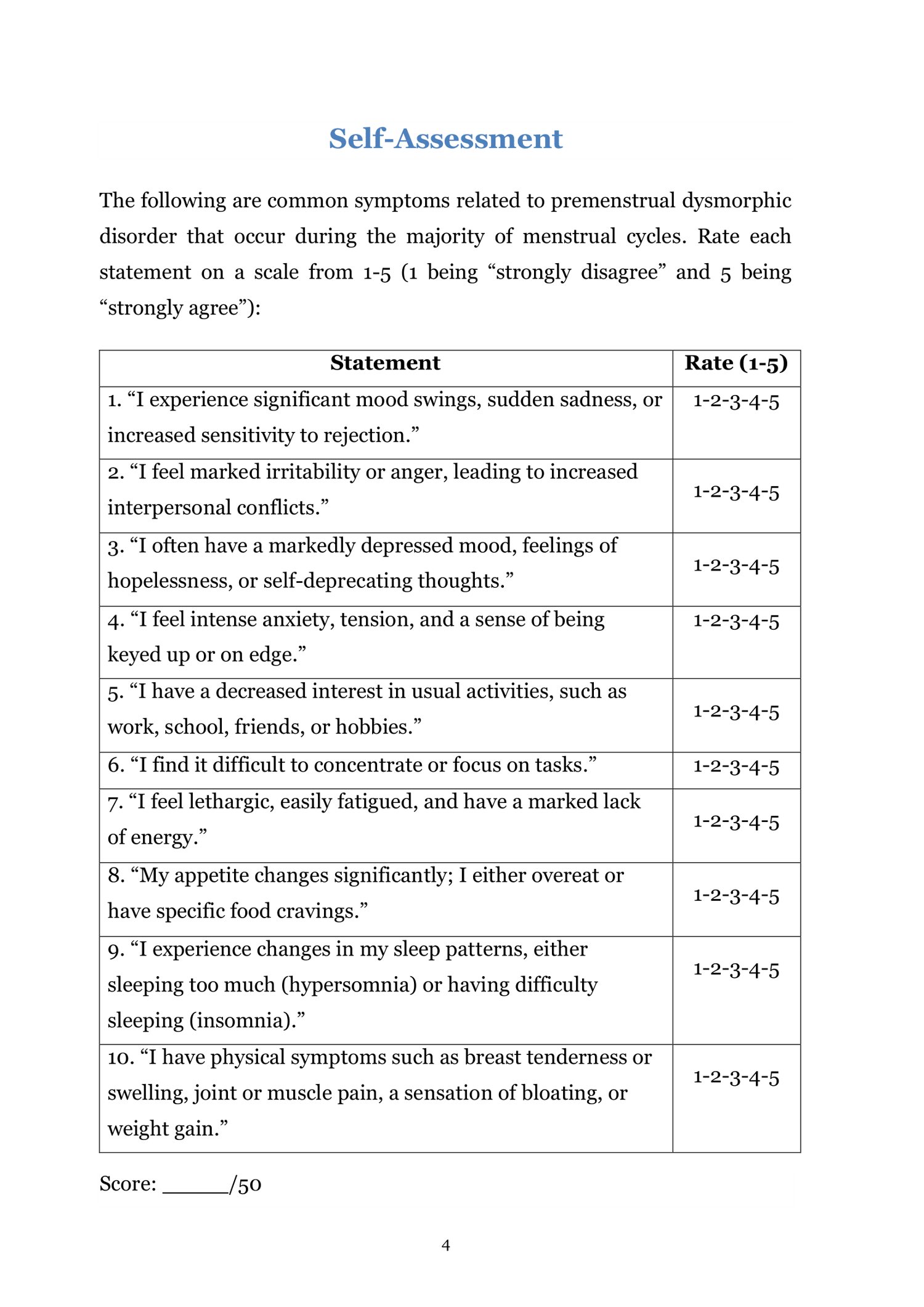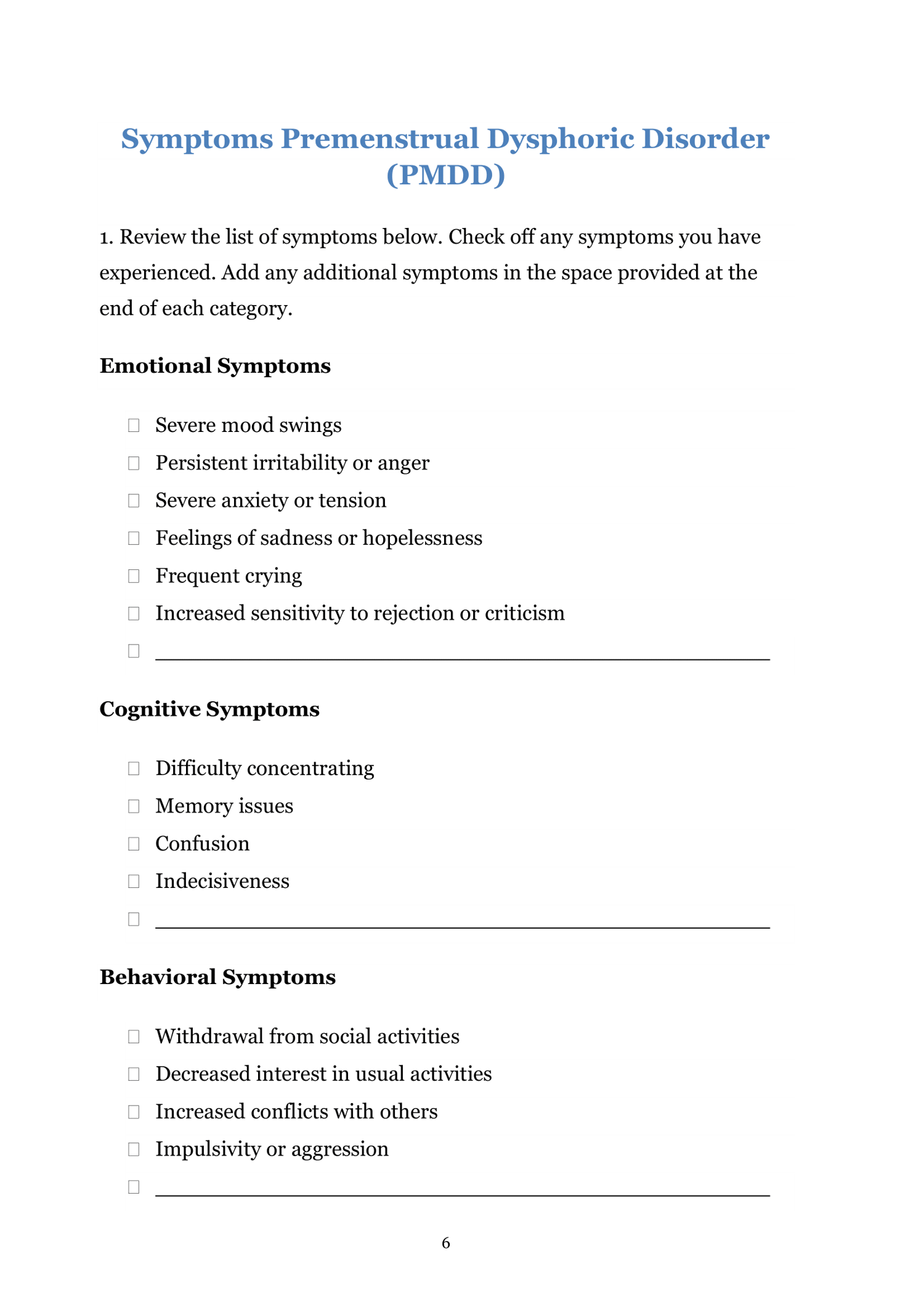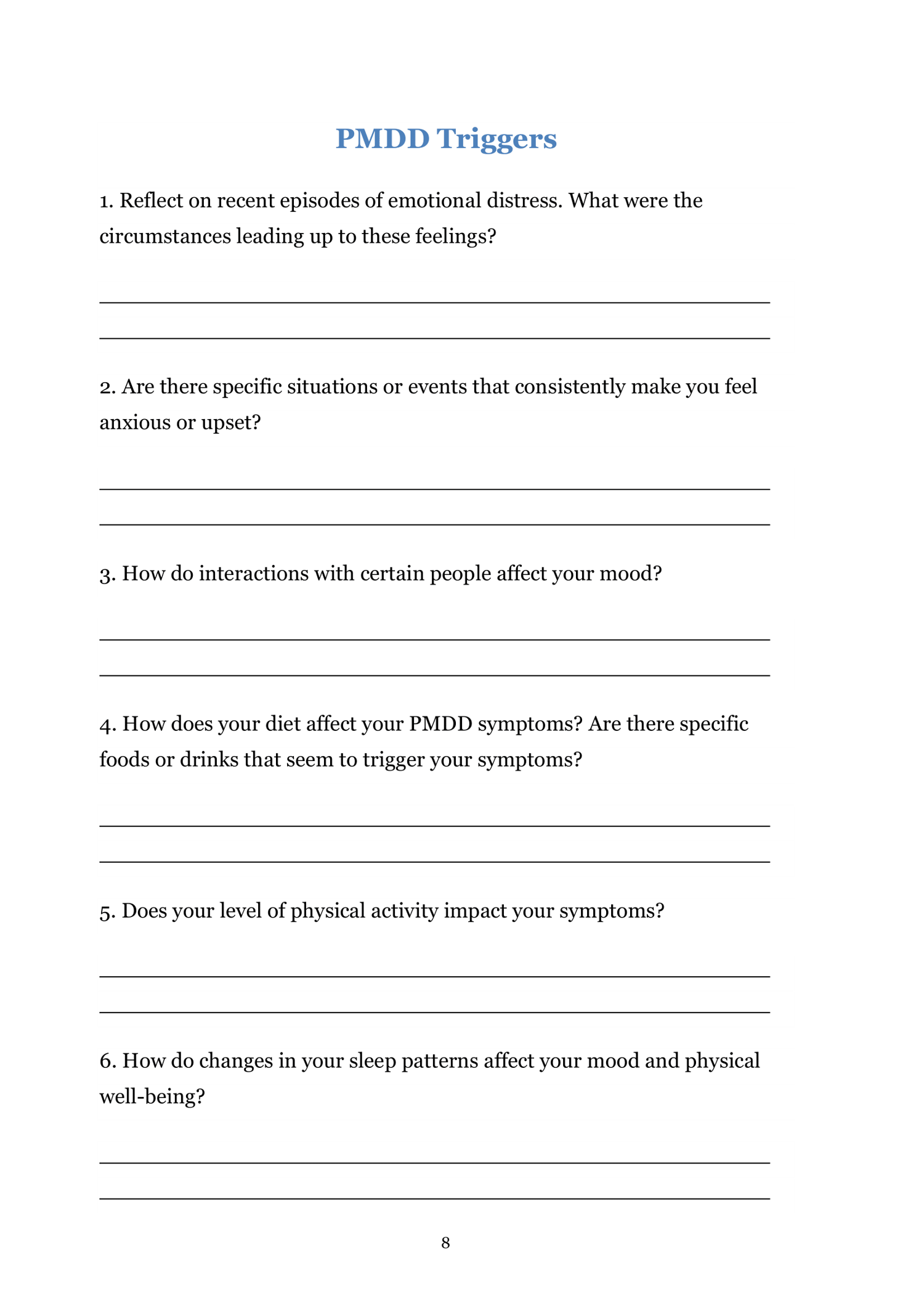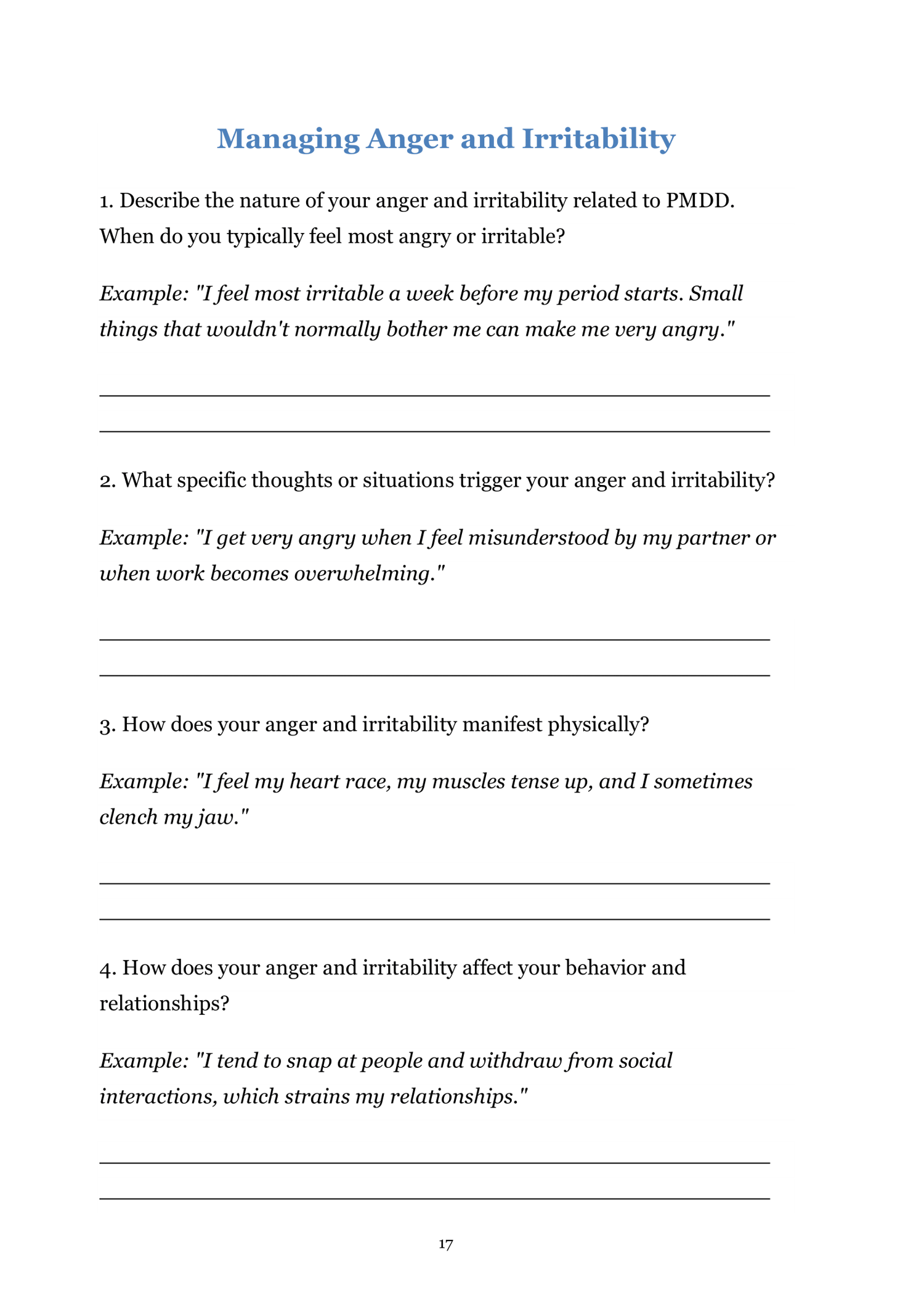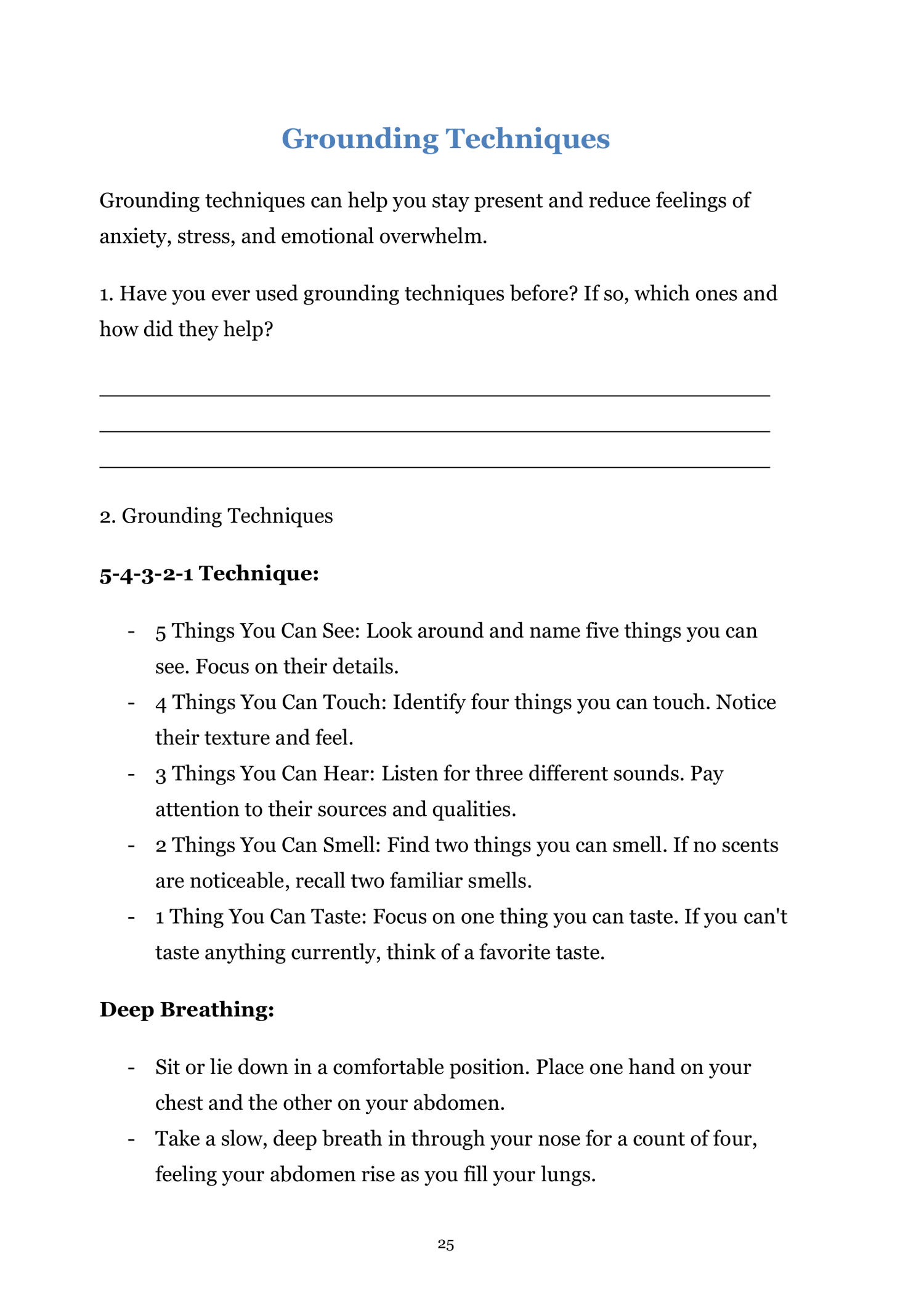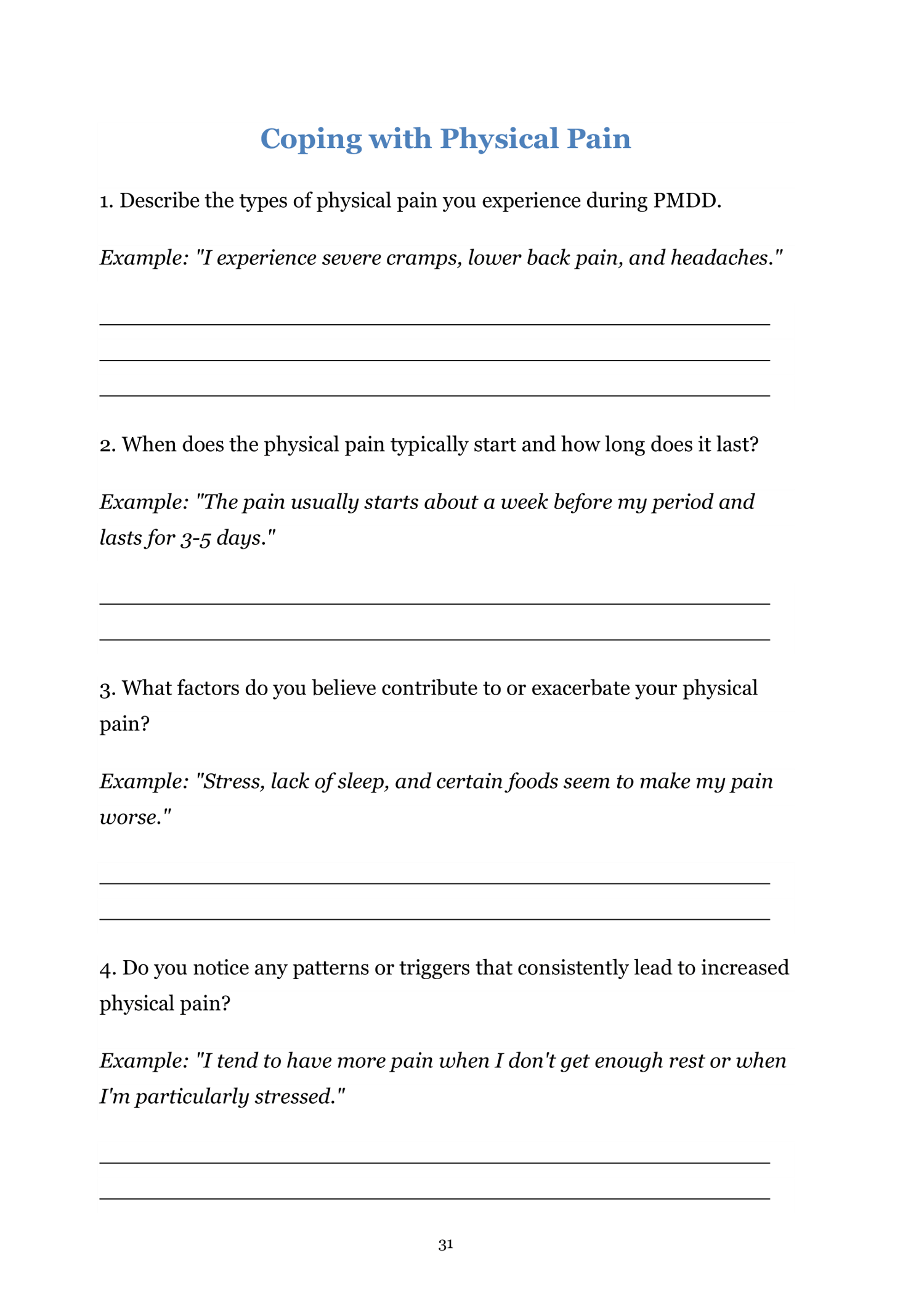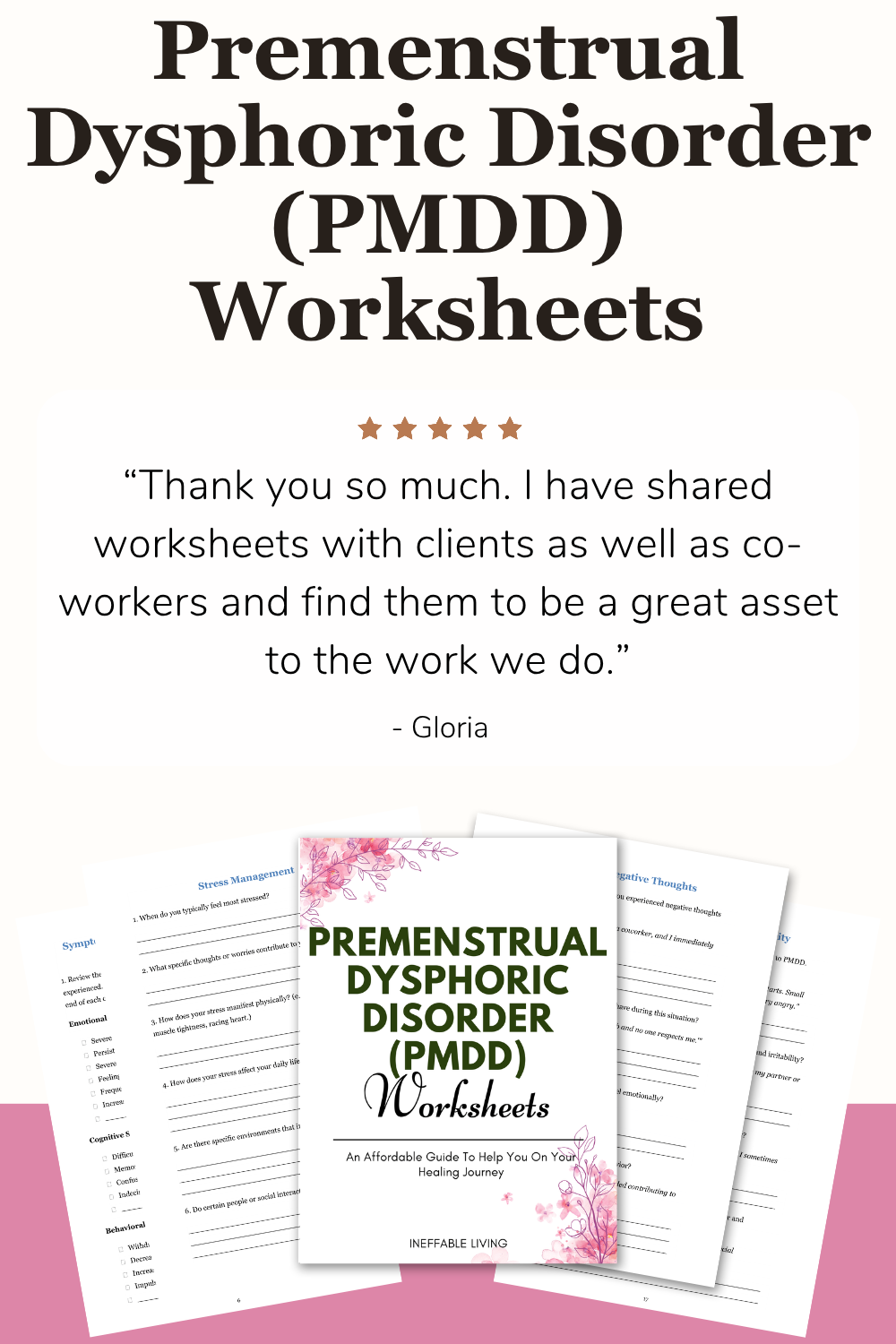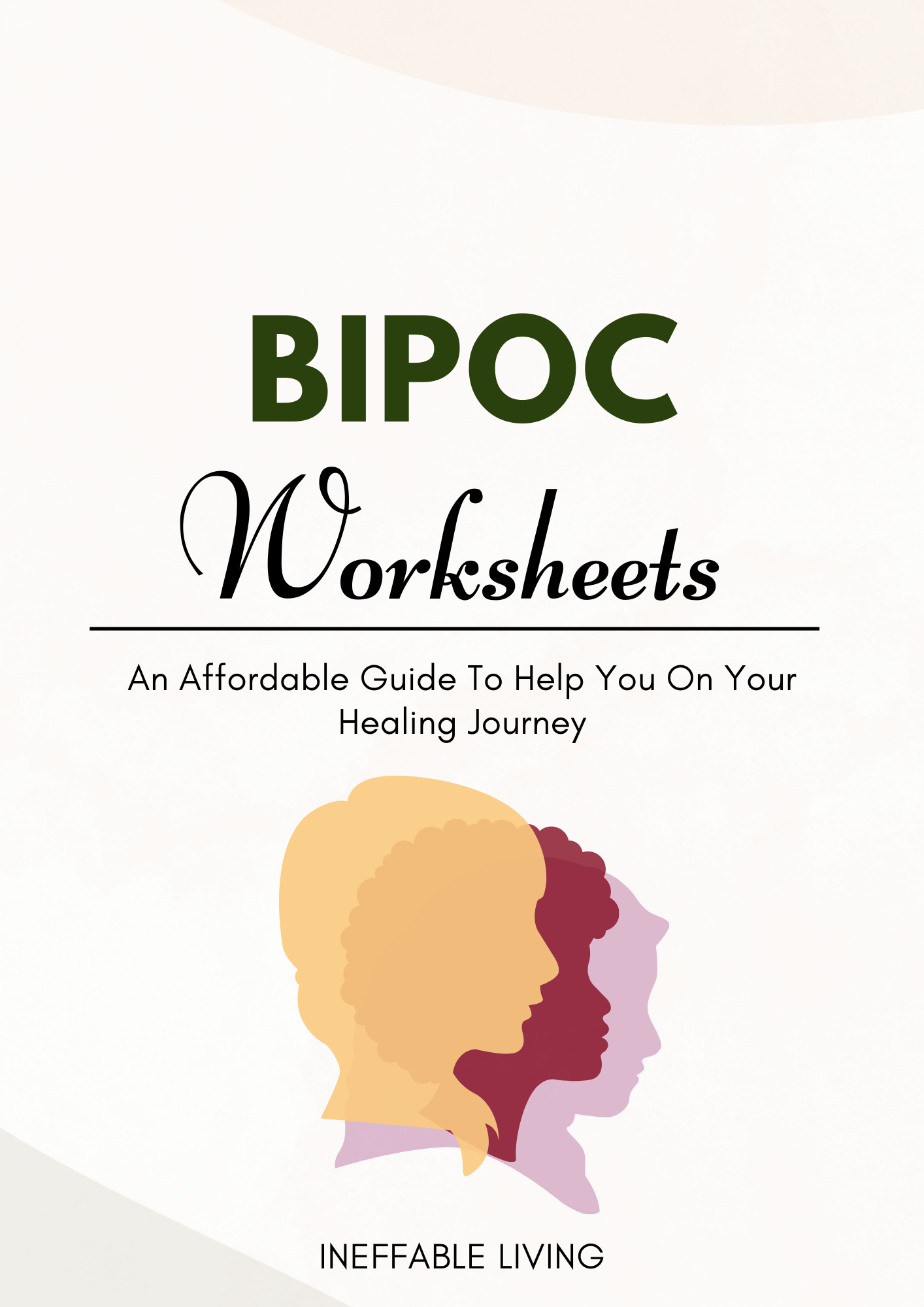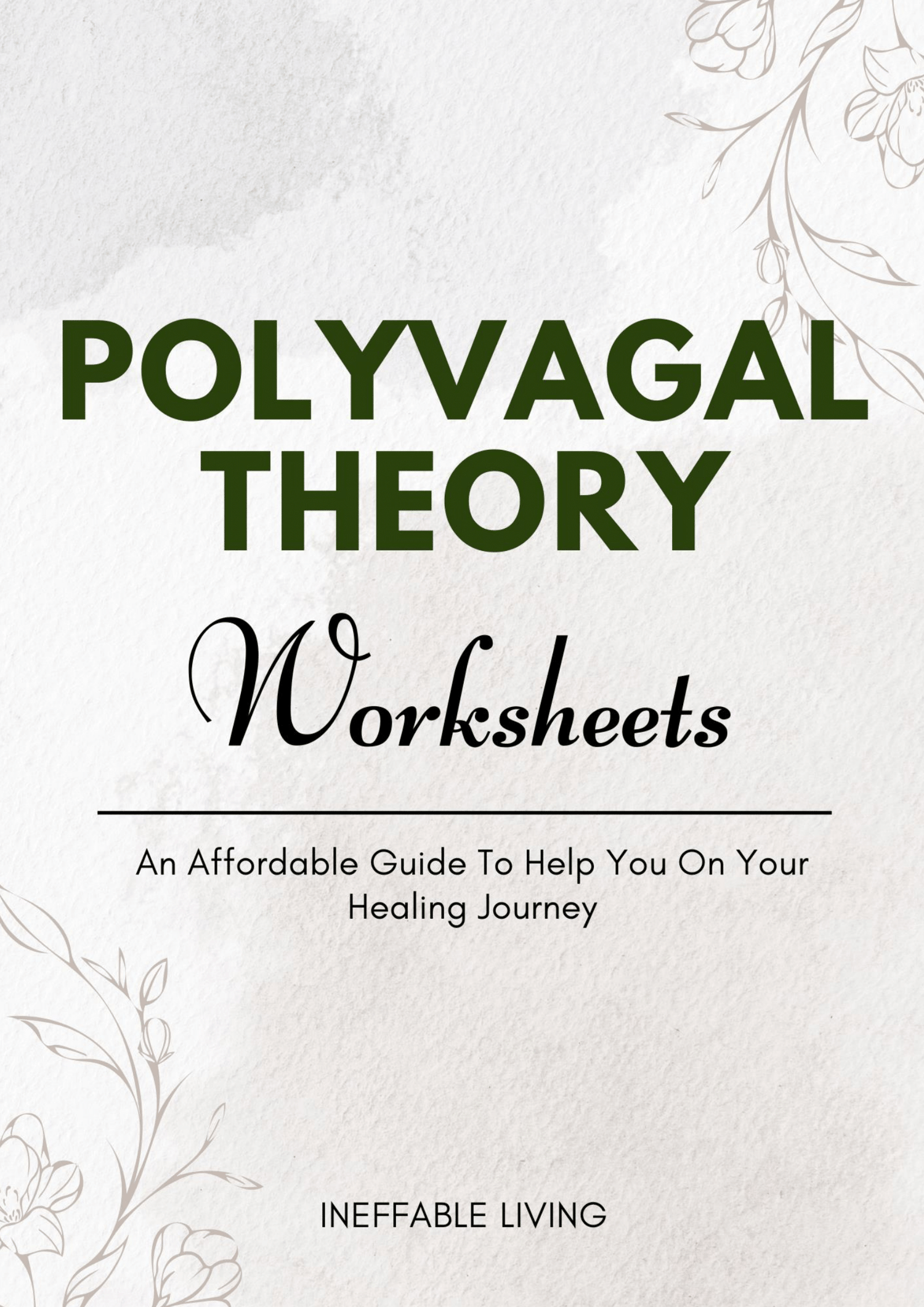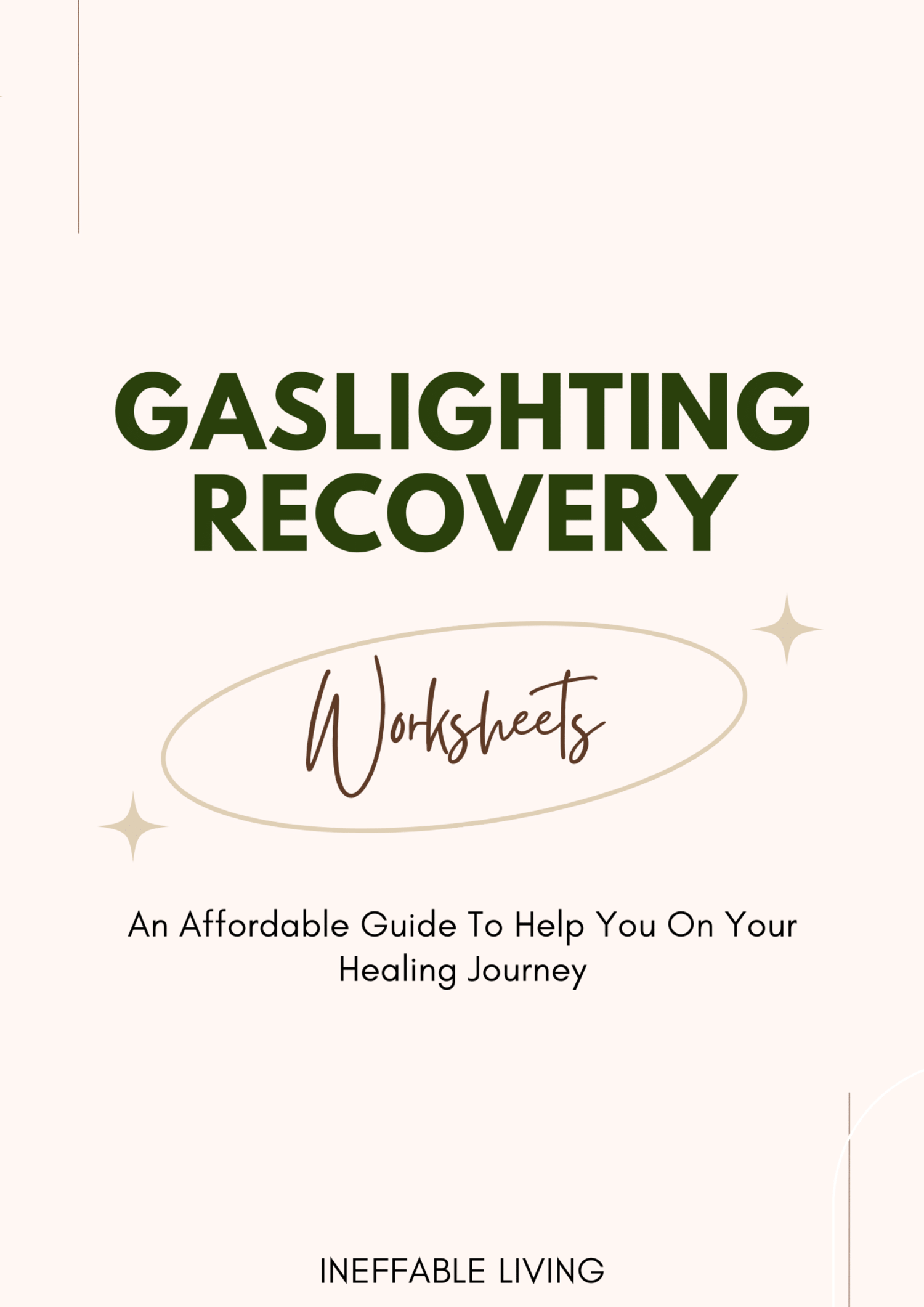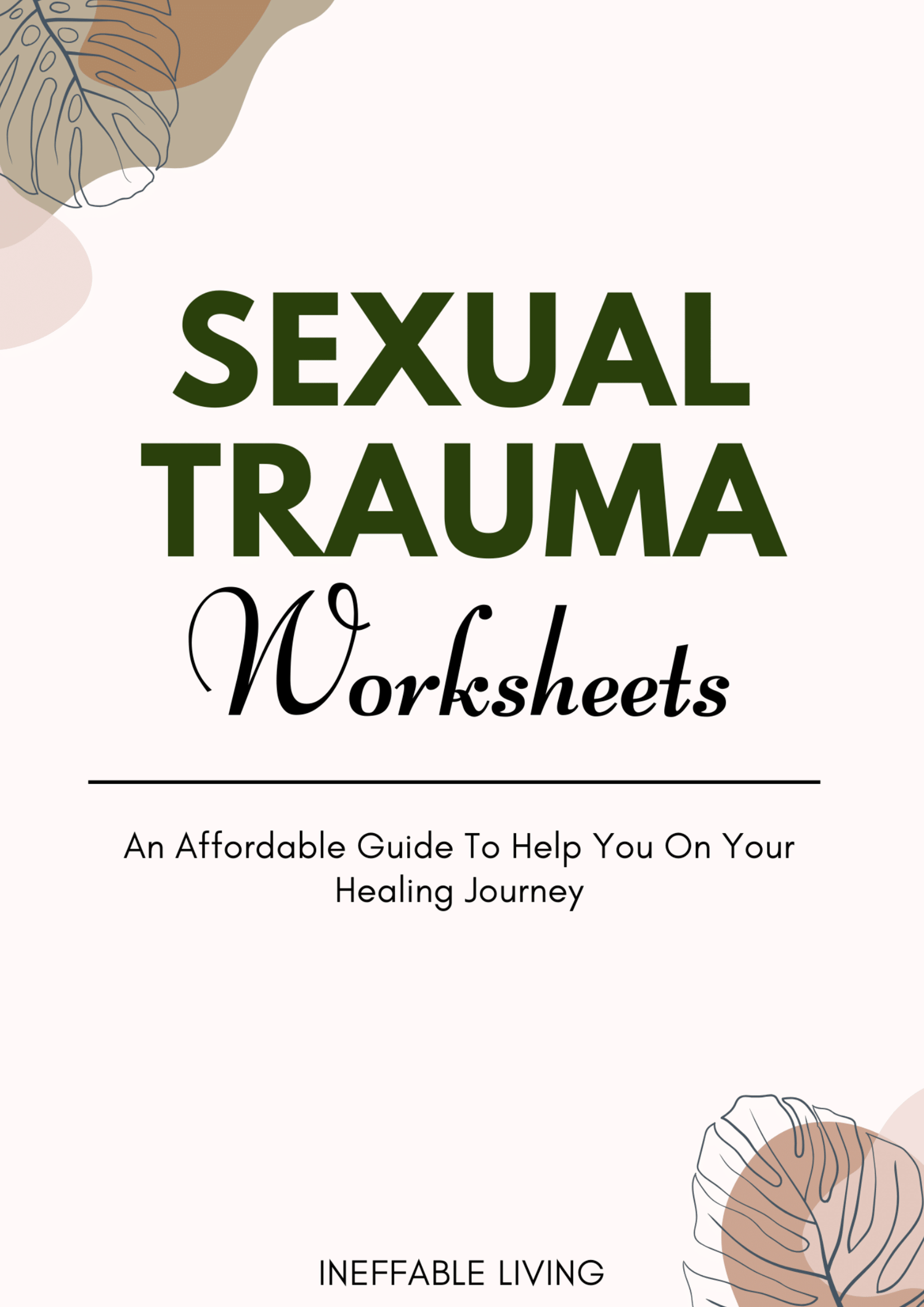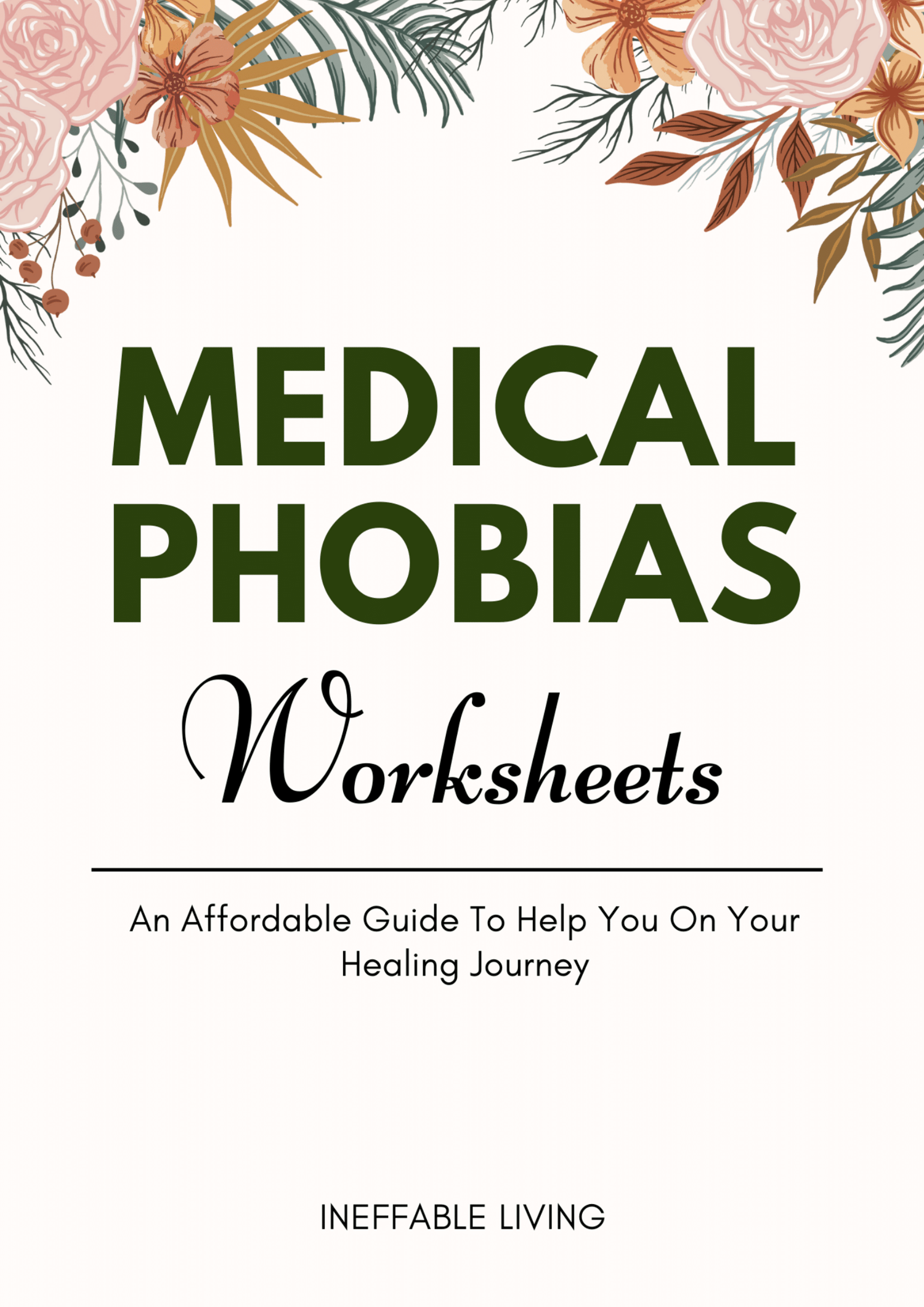Premenstrual Dysphoric Disorder (PMDD) Worksheets
Get Entire Shop Bundle for 85% off
Do You Feel Like a Different Person Right Before Your Period?
Premenstrual Dysphoric Disorder (PMDD) is more than “PMS.” It’s a severe, cyclical condition that can disrupt your emotions, thoughts, and relationships every single month. You may feel like you lose control of your mood, energy, or identity—only to return to yourself once your period starts. It’s exhausting, confusing, and often misunderstood. But there are ways to manage it with more clarity, care, and support.
Do you relate to any of the following?
- Do you experience severe mood swings or irritability before your period?
- Are you struggling with anxiety or depression that worsens premenstrually?
- Do you find it difficult to concentrate or stay focused during the premenstrual phase?
- Are you overwhelmed by physical symptoms such as fatigue, bloating, or breast tenderness?
- Do you experience a significant drop in self-esteem or confidence before your period?
If so, Premenstrual Dysphoric Disorder (PMDD) Worksheets can provide you with the tools and strategies you need to manage your symptoms and improve your quality of life.
(+30 pages of evidence based exercises and techniques)
What’s Included?
- Self-Assessment
- Symptoms Premenstrual Dysphoric Disorder (PMDD)
- PMDD Triggers
- Stress Management
- Challenging Negative Thoughts
- Managing Anger and Irritability
- Setting Boundaries
- Grounding Techniques
- Creating a Healthy Routine
- Coping with Physical Pain
- Planning for PMDD Days
What Is Premenstrual Dysphoric Disorder (PMDD)?
Premenstrual Dysphoric Disorder (PMDD) is a severe, chronic medical condition that is a more intense form of premenstrual syndrome (PMS). It affects women in the luteal phase of their menstrual cycle, typically starting one to two weeks before menstruation and subsiding shortly after the period begins.
PMDD is a serious condition that can have a significant impact on a woman's quality of life.
Premenstrual Dysphoric Disorder (PMDD) is officially recognized in the Diagnostic and Statistical Manual of Mental Disorders, Fifth Edition, Text Revision (DSM-5-TR) as a depressive disorder.
DSM-5-TR Diagnostic Criteria for PMDD
A. In the majority of menstrual cycles, at least five symptoms must be present in the final week before the onset of menses, start to improve within a few days after the onset, and become minimal or absent in the week post-menses.
B. One or more of the following must be present:
- Marked affective lability (e.g., mood swings; sudden sadness or tearfulness; increased sensitivity to rejection).
- Marked irritability or anger or increased interpersonal conflicts.
- Marked depressed mood, feelings of hopelessness, or self-deprecating thoughts.
- Marked anxiety, tension, or feelings of being keyed up or on edge.
C. Additionally, one or more of the following must be present, to reach a total of five symptoms:
- Decreased interest in usual activities (e.g., work, school, friends, hobbies).
- Subjective difficulty in concentration.
- Lethargy, easy fatigability, or marked lack of energy.
- Marked change in appetite; overeating; or specific food cravings.
- Hypersomnia or insomnia.
- A sense of being overwhelmed or out of control.
- Physical symptoms such as breast tenderness or swelling, joint or muscle pain, a sensation of “bloating,” or weight gain.
D. The symptoms are associated with clinically significant distress or interference with work, school, usual social activities, or relationships.
E. The disturbance is not merely an exacerbation of another disorder (e.g., major depressive disorder, panic disorder, dysthymia, or a personality disorder).
F. Criterion A should be confirmed by prospective daily ratings during at least two symptomatic cycles.
G. The symptoms are not attributable to the physiological effects of a substance (e.g., drug of abuse, medication) or another medical condition.
Take Control of Your PMDD Today
Empower yourself with the tools and strategies to navigate PMDD more effectively. Whether you are dealing with emotional challenges, physical symptoms, or seeking overall well-being, our PMDD Worksheets can provide the support you need.
Start your journey to better mental health and well-being now!

